Bombing Yemen: Signalgate Deserves to Be a Major Scandal
But the assault on Yemeni civilians the hapless conspirators discussed in their private chat group is an even bigger disgrace—though so far the press haven’t paid much attention.
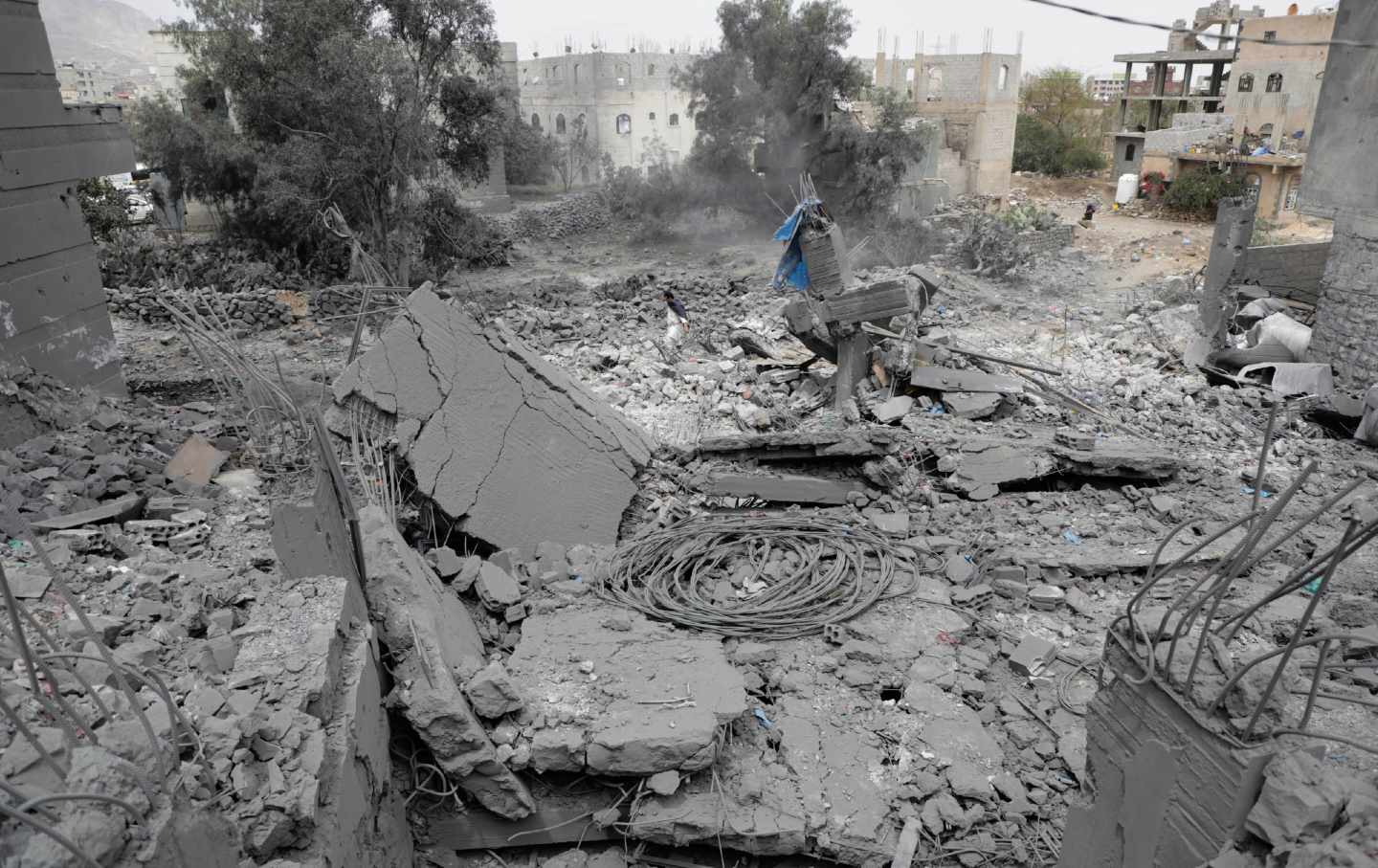
Signalgate has taken over the airwaves, TV news, radio shows, computer screens, newsfeeds, social media and more. That’s not surprising—it was a huge breach of the most basic rules of the intelligence community: You don’t talk about targets with anyone who doesn’t need to know; you don’t spill the times and plans for coming attacks, and you don’t talk about military stuff at all on commercial messaging services in an informal chat-group with a bunch of government principals—and invite a well-known journalist to join in. And you never hold official government meetings on a comms system that deletes the record in four weeks, so the National Archives, where the record of every meeting is supposed to end up, never knows it exists.
So yeah, the violation of intelligence rules was a really big deal. One or two heads might roll—or maybe it’ll soon be overtaken by an even bigger incompetence scandal.
But the biggest threat—that has already resulted in real lives lost—is being ignored. And that is the threat to the lives of Yemeni people—who, how many, how many were children, we still don’t know—being killed by US bombs across the poorest nation in the Arab world.
The US bombing of Yemen—always referred to as “bombing the Iran-backed Houthi rebels” to avoid acknowledging that, like in Gaza, the bombs are dropping on civilian infrastructure and civilians already facing devastating hunger—had begun under the Biden administration in January 2024. Like Israel’s bombing of Gaza, US bombs, drones, missile strikes sometimes managed to kill someone who was part of the Houthi military wing—officially known as Ansar Allah—or destroyed some piece of military equipment. But, like Israel’s assault on Gaza, the US bombing of Yemen took place across the country—in major cities including the capital Sanaa, the port city of Hodeidah and numerous other towns, where ordinary Yemenis live. And those US bombs killed those ordinary Yemenis.
The Houthis launched their attacks to support Palestinians in Gaza, hoping to pull Israeli forces away from their assault on Gaza. They imposed a naval blockade in the Red Sea aimed at Israeli ships, and keeping other commercial vessels—either from allies of Israel or thought to be carrying weapons or related military goods to Israel—away from Israeli ports and in some cases away from the Suez Canal. The US attacks on Yemen were said to be in response to the Houthis’ blockade—but the global economic cost that resulted from the blockade did not persuade the Biden administration to stop enabling Israel’s assault. In fact, when Israel and Hamas agreed to a ceasefire on January 19, 2025, the Houthis accepted the agreement as well, and stopped their attacks.
That ceasefire lasted six weeks, but then, rejecting its planned second stage, Israel escalated its genocidal campaign against Gaza. On March 2, Tel Aviv ordered a complete blockade, cutting off all humanitarian aid to the 2 million people in Gaza, still suffering the effects of months of deadly bombardment, amid continuing shortages of water, food, medicine, fuel and more, despite the aid trucks allowed in during the January-February ceasefire. Babies were already dying of hypothermia, UNICEF reported, and thousands more were put at risk when the new blockade was imposed. Shortages of water, food, shelter, and medical care took hold again.
Five days later, treating the new blockade as an Israeli violation of the ceasefire, a Houthi military leader declared that if Israel did not end the blockade and allow aid trucks back in, his forces would resume attacks on Israeli-linked ships. And on March 11 they announced that they would resume military operations against Israeli ships.
But the Houthis did not actually restart their attacks. When the US resumed bombing Yemen on March 15, there had not been a Houthi attack on any ships in months. Citing multiple Pentagon officials, Military.com reported that “the last Houthi attack they were aware of occurred in December—months ago and before President Donald Trump even took office.”
At the same time the US strikes resumed, Israel was continuing its attacks on Yemen, bombing numerous sites including the Sanaa airport, west coast ports crucial for bringing aid to the impoverished population, and power plants. And Prime Minister Netanyahu boasted that Israel was “just getting started.”
Which brings us back to the March 15 Signal chat among the highest-ranking US intelligence, political, and military officials tossing around ideas about how to explain and justify new rounds of US military attacks that had no legitimate claim of self-defense, lacked any consideration of diplomatic alternatives, violated US and international law, and were unconstitutional since Congress had never approved war against Yemen—or even been consulted.
In the first days of the renewed attack, according to the Yemeni Data Project, 53 people were killed—four of them children. As Yemeni academic and activist Shireen Al-Adeimi put it: “With all the noise about the Signal leak, is anyone in Congress or the media concerned that actually bombing Yemeni people and Yemen’s infrastructure is unconstitutional? Anyone?”
Apparently not. Certainly no one on the Signal thread. Call organizer Michael Waltz bragged that “the first target—their top missile guy—we had positive ID of him walking into his girlfriend’s building and it’s now collapsed.” No one asked whether the girlfriend was killed too, or whether her family, or the neighbors, were crushed in the rubble of her building. Were they among the 53 known killed in those first days? If so that thread is prima facie evidence of a war crime.
Popular
“swipe left below to view more authors”Swipe →And seemingly no one among the multitudes of Congresspeople (mainly Democrats), pundits (of all stripes), former intelligence and military operatives, and too many journalists, all outraged by the Signal call, is paying much attention to the Yemenis under the bombs. The Signal Squad themselves were very concerned about how to sell the renewed bombing campaign. As Secretary of Defense Pete Hegseth told them, “nobody knows who the Houthis are—which is why we would need to stay focused on: 1) Biden failed and 2) Iran funded.”
The “Biden failed” part is just an excuse. Threatening Iran is almost certainly the main reason for Washington’s resumption of bombing. Two days into the renewed strikes on Yemen, Pentagon spokesman Sean Parnell described the bombing raids as part of a “new direction” for the White House. “I think President Trump has made it very clear that he’s put Iran on notice,” he said.
Despite having earlier hinted at a willingness to negotiate with Iran over its civilian nuclear power program, Trump’s “maximum pressure” policy has been dominant, and with the new strikes again Yemen he again issued direct threats against Iran. On the same day the US bombing resumed, he wrote:
To Iran: Support for the Houthi terrorists must end IMMEDIATELY! Do NOT threaten the American People, their President, who has received one of the largest mandates in Presidential History, or Worldwide shipping lanes. If you do, BEWARE, because America will hold you fully accountable and, we won’t be nice about it!
Right now, according to UNICEF’s Yemen representative, speaking in Geneva on March 25, Yemenis are suffering “one of the world’s worst protracted humanitarian crises—a crisis defined by hunger, deprivation, and now, a worrying escalation.” An escalation the consequence of Trump’s decision “not to be nice.”
Correction: A former version of this article misstated the author of one of the Signal messages as Vice President JD Vance. This has been corrected.
More from The Nation
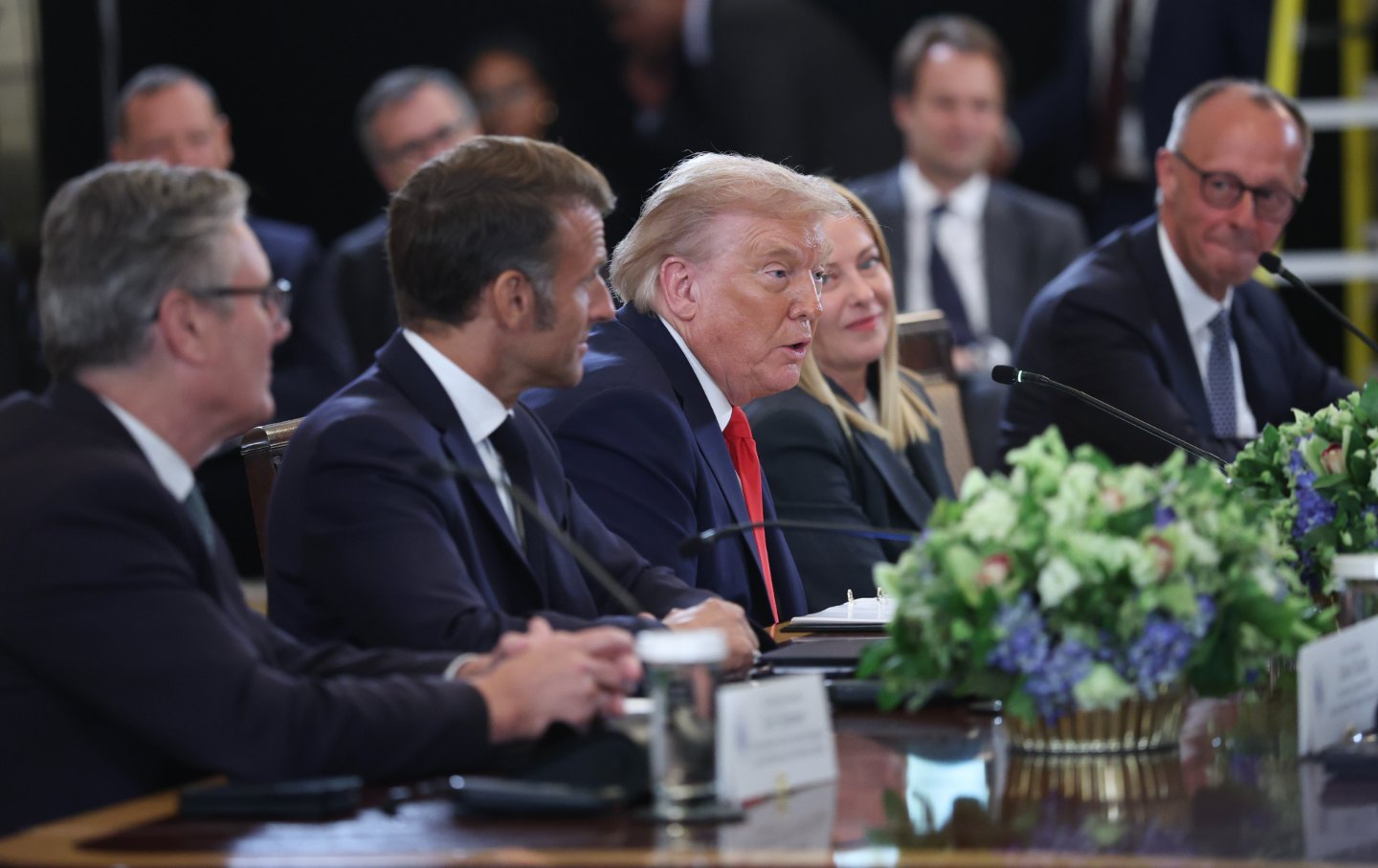
European Cowardice Is Empowering Trump’s New Imperialism European Cowardice Is Empowering Trump’s New Imperialism
NATO allies don’t want to confront Trump’s aggression. But they may ultimately not have a choice.
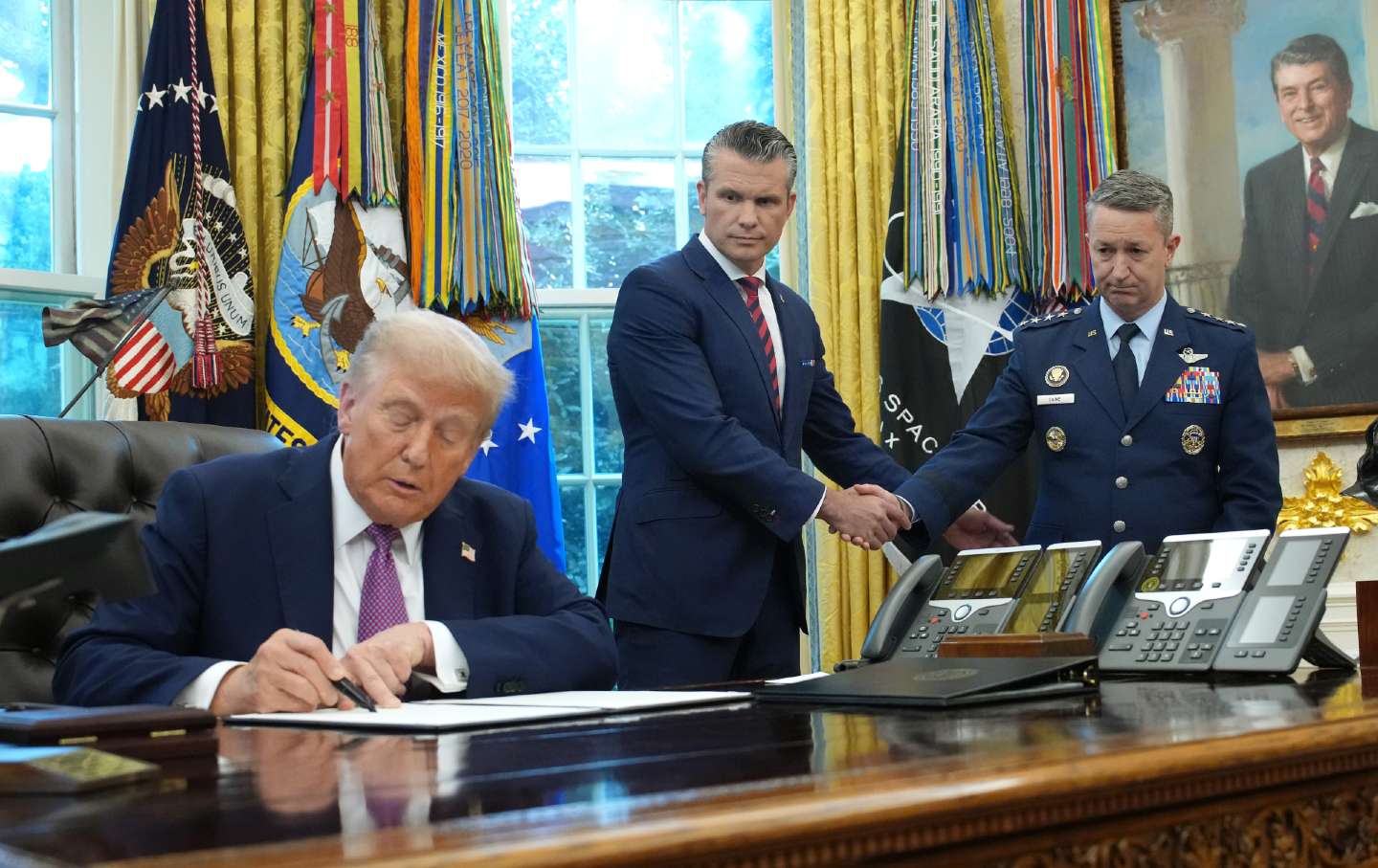
Trump and His Cronies Want a War in the Western Hemisphere Trump and His Cronies Want a War in the Western Hemisphere
Don’t be fooled by the anti-interventionist language. The Trump administration is only too eager to use military force.
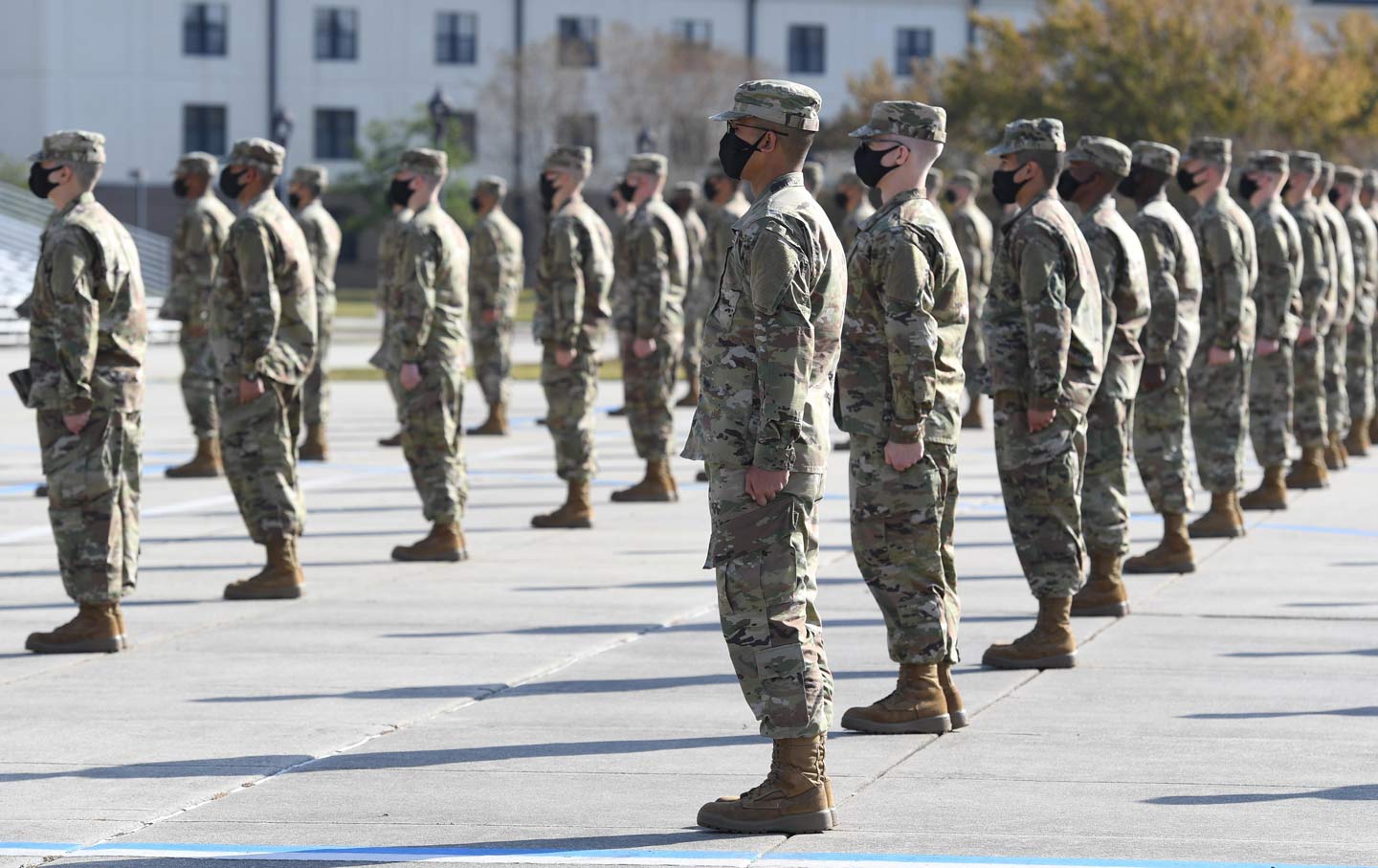
Who’s Responsible When a Military Order Is Illegal? Who’s Responsible When a Military Order Is Illegal?
For military members, simply recognizing that you have the legal capacity to do what’s right is no small thing.

Trump’s National Security Strategy and the Big Con Trump’s National Security Strategy and the Big Con
Sense, nonsense, and lunacy.
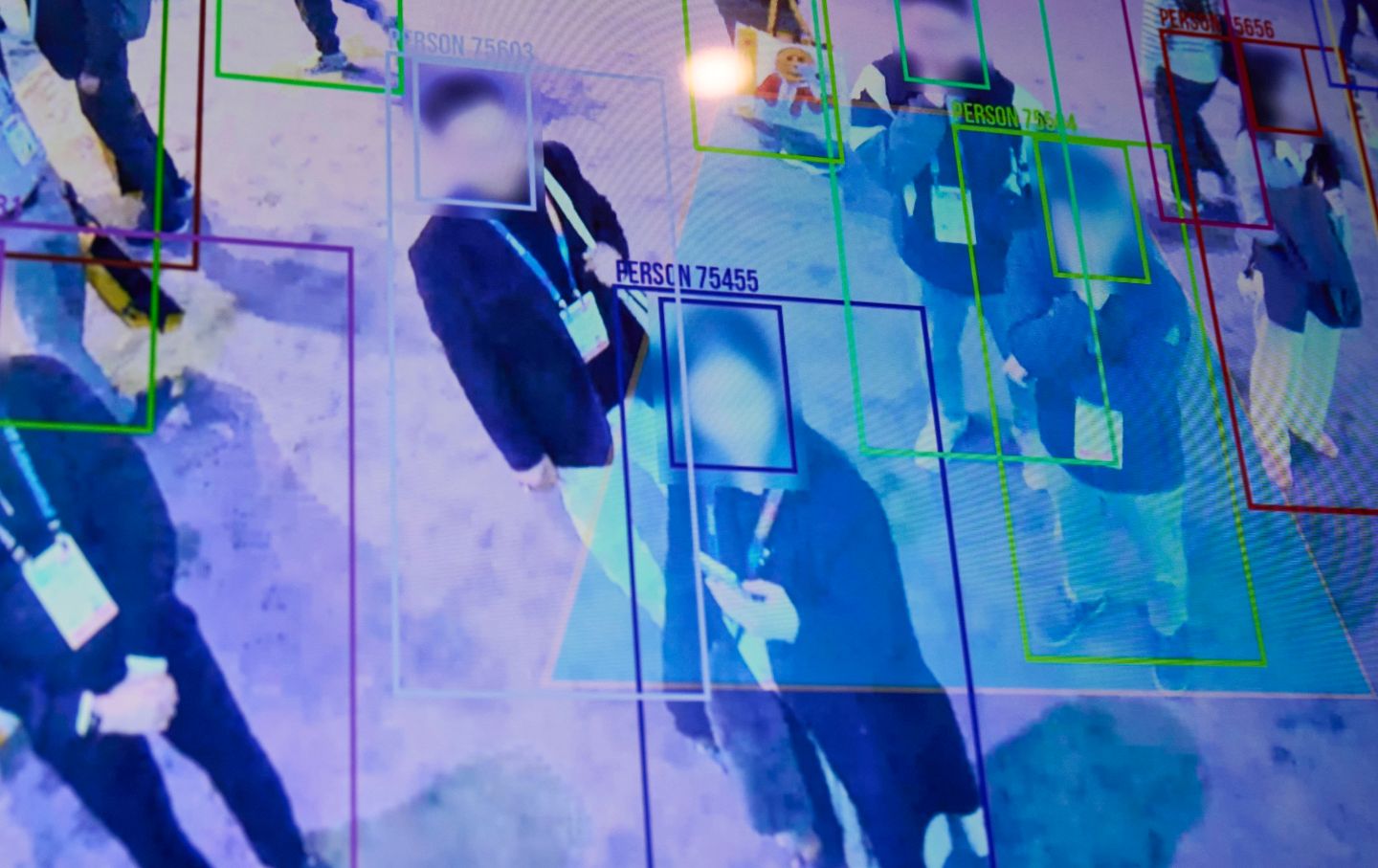
Can We Opt Out of Facial Recognition Technology? Can We Opt Out of Facial Recognition Technology?
I traveled through airports and reported in sports stadiums this year. At each, I was asked to scan my face for security.



